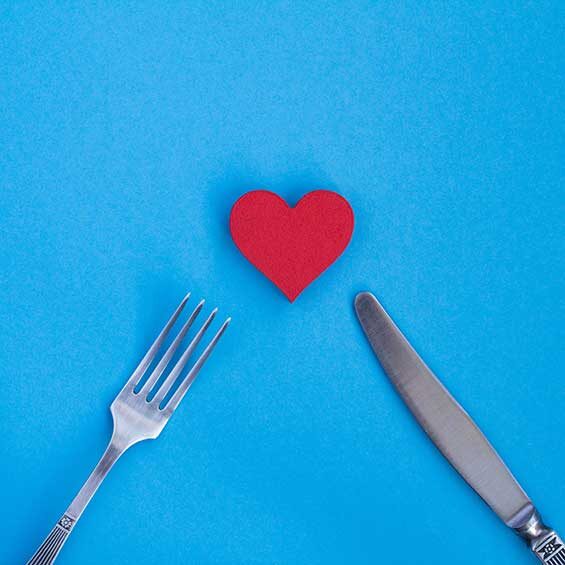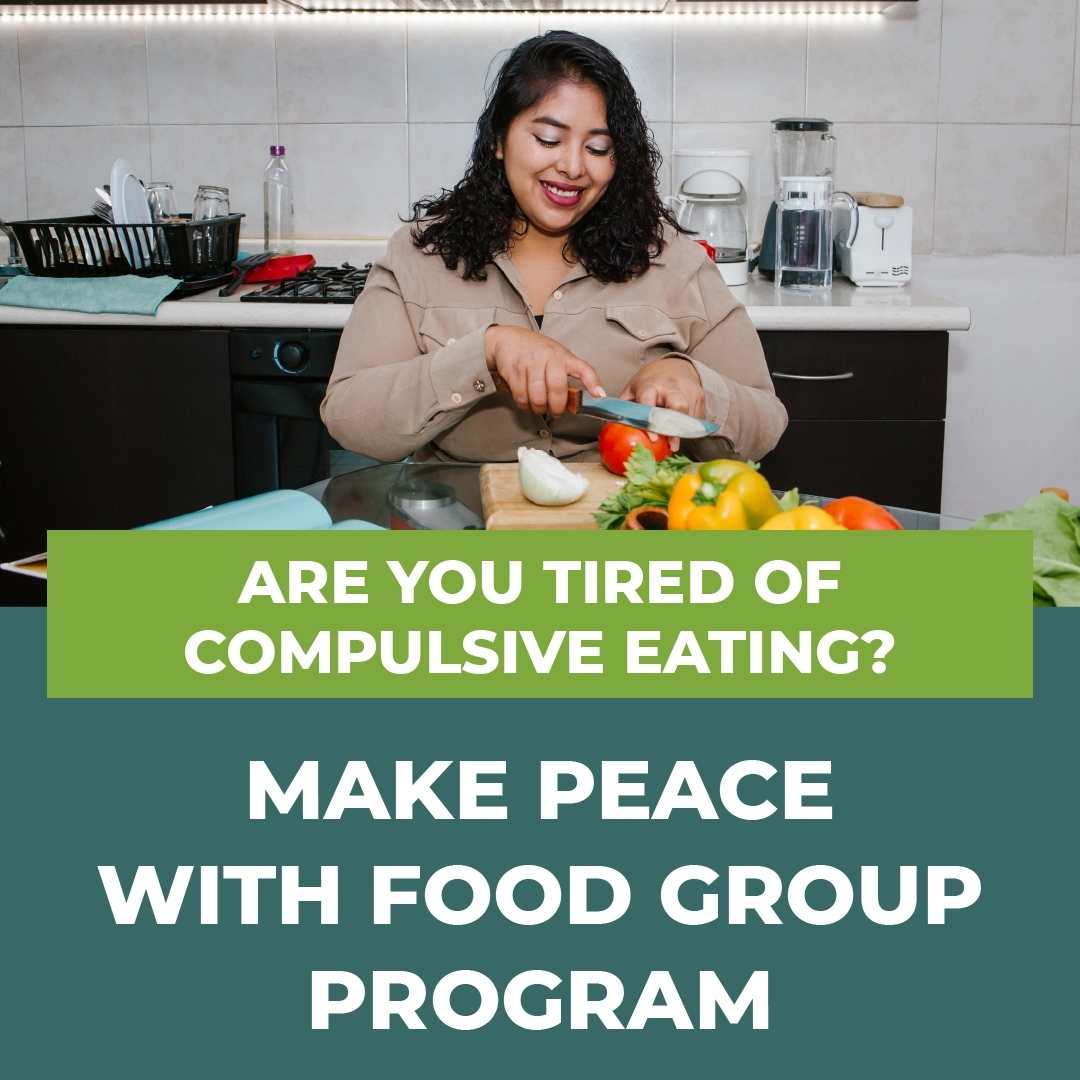
Eating Disorder Treatment
in Houston, TX and Online
Do You Need Eating Disorder Treatment?
When food consumes such a large portion of your life, it can seem almost impossible for things to be different. But they can be. We have several eating disorder therapists at Eddins Counseling Group in Houston, Tx who understand eating disorders, binge eating, and emotional overeating. It’s complex. We get it. And we’d like to show you another way. Have hope. Healing … and thriving is possible!

What is Disordered Eating?
Essentially, disordered eating means eating in a way that is harmful whether physically, emotionally or both. When thoughts, feelings, and behaviors around food consume a large portion of your life, they can become eating disorders.
Should you be concerned about your eating habits?
If you answer yes to any of the following questions, you would benefit from talking with an eating disorder specialist.
- Do you eat large amounts of high calorie food in a short period of time?
- Do you eat when you are disappointed, tense or anxious?
- Do you have food rituals, or restrict foods or food groups?
- Do you engage in purging behaviors, use laxatives or diuretics, or excessively exercise?
- Do you find yourself preoccupied with gaining weight?
- Do you weigh yourself once or twice (or more) a day?
- Do you often eat more than you planned to eat?
- Have you hidden food so you would have it just for yourself?
- Do you worry you can’t control how much you eat?
- Are you uncomfortable eating around others?


Types of Eating Disorders & Disordered Eating Patterns
Eating Disorders
Eating disorders include extreme emotions, attitudes, and behaviors surrounding weight and food issues. Eating disorders are serious emotional and physical problems that can have life-threatening consequences. People of all body weights can struggle with an eating disorder. Their weight may go up over time, remain stable, or they may even have periods of weight loss, usually followed by regaining the weight over time. Ultimately, the person feels unable to change their eating patterns permanently. Eating disorders impact both males and females.
- Anorexia Nervosa: includes food restriction, excessive weight loss, intense fear of gaining weight and may include loss of menstrual period.
- Bulimia Nervosa: involves a cycle of binge eating followed by purging. Purging behaviors can include vomiting, laxative use, diuretics, diet pills, fasting or excessive exercising.
- Binge Eating: involves episodes of uncontrollable overeating without purging – often in secret – followed by feelings of shame. Binge eating episodes may be followed by periods of dieting, food restriction or skipping meals.
- Compulsive Exercise: excessively exercising can be a symptom that significantly interferes with quality of life and leads to emotional and physical health complications. Exercise can be secret, or used as a means of purging or permission to eat.


Disordered Eating Patterns
- Orthorexia: obsession with healthful eating that becomes compulsive, rigid, anxiety producing and so time consuming it interferes with quality of life.
- Compulsive Eating: involves eating not related to physical hunger that feels like an addiction, but is not described better by another type of eating disorder.
- Emotional Eating: involves turning to food for stress relief, reward, a break, comfort, distraction, or other reasons. We all eat emotionally from time to time. It becomes problematic when it’s the primary method of coping.
- Chronic Dieting : if you’ve yo-yo dieted and would consider yourself a chronic dieter, you may have developed one of the disordered eating patterns described above. Chronic dieting wreaks havoc on your body physically, but can also lead to an eating disorder. Rather than dieting, we recommend an attuned eating process, intuitive eating.
- Food Addiction – many people feel “addicted” to food, having strong food cravings and uncontrollable urges to eat. Emotions may also feel more intense after eating such as a surge of energy and increased heart rate after eating sugar. It’s important to understand that “food addiction” isn’t the same as other chemical addictions.
- Night Eating Syndrome: involves eating later in the evening – either after awakening from sleep, or by excessive food consumption after the evening meal.
Treatments & Therapies for Eating Disorders at Eddins Counseling Group
We offer outpatient eating disorder treatment. Therapies are customized to each individual. However, we do use evidence-based therapies, which may incorporate skills from:
- Cognitive Behavioral Therapy
- Acceptance & Commitment Therapy
- Dialectical Behavioral Therapy
- Trauma-Focused Therapy
- Somatic Therapy
Therapy sessions are typically held on a weekly basis and may occasionally include family therapy or other supportive members of your life. In addition to individual therapy, participating in an eating disorder therapy group may be helpful.


Eating Disorder Treatment FAQ's
Each person's situation is unique. A treatment plan will be customized for you. Eating disorder treatment typically includes the following:
- Assessment and diagnosis - this includes medical, psychological, and nutritional factors.
- Working with a treatment team including mental health counseling, nutritional counseling, medication to reduce the intensity of symptoms, and physical monitoring. Group therapy may also be helpful. For children and teens, family therapy will be a part of the process.
- Restoring physical health: restoring healthy body weight, managing eating disorder behaviors (food restriction, compulsive exercise, binge eating, purging, etc) and establishing normalized eating and nutrition.
- Addressing eating disorder thoughts and the eating disorder mind.
- Reconnecting with your body, learning attuned eating and discerning the physical signals provided by your body.
- Learning problem solving and coping skills, building and strengthening internal resources, improving mood and relationships.
- Fostering self-acceptance, self-compassion, emotional regulation and expression, and interpersonal skills.
- Moving out of patterns of shame and judgment, shifting out of black and white thinking, identifying triggers and needs/voids food is attempting to fill, and finding alternative ways to soothe.
- Clarifying values and goals and taking steps to build a meaningful life free from the eating disorder.
Eating disorder recovery means discovering a meaningful life and factors that contribute to ongoing life satisfaction without an eating disorder: values, connection, self-worth, etc.
Recovered means eating and moving in response to body needs most of the time. Your body’s needs will vary day to day.
There are several factors that contribute to how long it may take to heal your relationship with food and body such as the time spent engaged in the restrict, diet/binge cycle, history of trauma, and your current resources.
Lasting recovery from an eating disorder is ongoing - there are setbacks, relapses, triggers and slips along the way.
Eating disorder recovery is a marathon not a sprint.
Read more: “Activities that Have Been Helpful in Recovery from Eating Disorders”
Eddins Counseling Group provides outpatient eating disorder treatment. This is the "lowest" level of care for mental health treatment and is typically an individual therapy session 1-3 times per week.
Our therapists can assess clients at all levels of severity, help determine the level of care needed and make referrals to appropriate eating disorder treatment centers and treatment teams if needed. This is particularly important in order to avoid medical complications as eating disorders can be serious.
Treatment options at other levels of care include intensive outpatient which may typically be 9-12 hours per week, partial hospitalization which is 4-6 hours per day, residential which means residing at the treatment facility or hospitalization, which typically occurs for medical stabilization prior to starting therapy.
We are mental health counselors so our role is to treat the psychological aspect of an eating disorder on an outpatient basis. As part of treatment, we work in collaboration with eating disorder dietitians, physicians and psychiatrists to ensure all aspects health and recovery are addressed.
Ongoing treatment with ECG may include both individual therapy and group therapy.
Support from loved ones can greatly improve someone's recovery from an eating disorder, but it can be hard to know what to do. Here are some ways you can help someone with an eating disorder:
- Encourage them to seek help.
- Recognize that change is scary, there can be shame in "having an eating disorder", and there may be a part of them that doesn't want to change or even believe there is a problem. Avoid arguing, rescuing, or even taking it personal.
- Use "I" statements and focus on your feelings so you don't trigger defensiveness. "I'm concerned", "I'm worried about..", "I've noticed you don't join us for dinner anymore."
- Hold hope - believe they can recover from the eating disorder.
- Learn about eating disorders so you can speak in a compassionate, understanding way with your loved one.
- Check in on their emotional well-being vs focusing on food. Listen without judgment.
- Offer to help with daily life activities.
- Set a positive example. Avoid negative body talk towards self or others.
- Avoid dieting talk or praising people based on weight.
- If you're a parent, provide nutritious meal options, sit down together as a family at mealtimes. You can discuss with a therapist or dietitian how to handle meals at home.
Eating disorders are complex and can develop in children, teens and adults for a variety of reasons. Eating disorders can also co-occur with other mental health conditions such as anxiety, depression or obsessive-compulsive disorder.
Eating disorders impact people of all body shapes and sizes, ages, and both male and female. Some 10 million males will suffer from an eating disorder at some point in their life.
Risk factors for developing an eating disorder include:
- Family member with an eating disorder
- Perfectionism or rigid thinking style
- History of dieting
- Psychological conditions or mental illness such as: anxiety, depression, obsessive-compulsive behaviors, addiction (in self or family member)
- Medical conditions that impact picky eating such as sensory processing disorder, food allergies, celiac disease, supertasters, autism, acid reflux, Chron's disease, ulcerative colitis, or gastrointestinal issues
- Type 1 Diabetes
- Body focused activities such as sports
- Weight teasing or body shaming (especially at a young age)
- Difficulty with interoception (awareness of body's internal cues)
- Difficulty with emotion regulation
What are common signs and symptoms of an eating disorder?
There are a variety of signs and symptoms, but the bottom line is feeling overall out of control in your relationship to food. A person may try to change his/her eating behavior, but will ultimately return to old patterns. Some people may have periods of discreet bingeing (i.e. consuming large quantities of food in a short time), they may overeat at mealtimes, restrict food, or they may “graze,” never really finishing a meal.
Common signs and symptoms include:
- Constantly checking appearance
- Compulsively exercising
- Making excuses not to eat
- Eating large quantities of food in one sitting
- Stomach pain
- Frequent bowel movements or time in the bathroom
- Frequent dieting
- Use of laxatives, diuretics, diet pills, vomiting to manage weight gain and food intake
- Fear of weight gain
A professional such as an eating disorder therapist can tell you if you have an eating disorder. Eating disorders are serious and painful struggles.
Take our eating disorder screening test to learn more.
Eating Disorder Therapy Group & Make Peace with Food Group
Our group programs offer additional opportunities for growth and support for people who struggle with food issues. Groups can be a powerful way to heal from an eating disorder or emotional eating as you embark on the journey to recovery with others who understand and support you. Our Eating Disorder Therapy Group is for those working on recovery from eating disorder symptoms.
Our Make Peace with Food Group is for those working to overcome chronic dieting, emotional overeating, compulsive eating or binge eating.
You deserve to have peace. We can help.
Join an Online Eating Disorder Therapy Group
Get Help From a Specialist in Eating Disorder Treatment
Alexandra Marshall
Alexandra’s focus is on helping you develop self-confidence, cope with feelings of anxiety, emotional eating, loneliness and isolation, and mana…
BOOK AN APPOINTMENTKelsey Engdorf
Kelsey enjoys working with teens, young adults, and couples to help them build the lives they want and make meaningful changes.
BOOK AN APPOINTMENTTiara Runyon
Tiara offers a collaborative approach, fit to suit your individual needs. Her experience includes working with those facing life transitions and…
BOOK AN APPOINTMENTWhat OTHERS Are Saying
Trust
I trust my therapist completely with my mental health



















